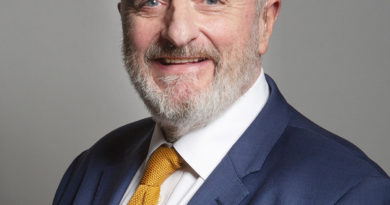Nadhim Zahawi – 2021 Statement on Covid-19
The statement made by Nadhim Zahawi, the Vaccine Deployment Minister, in the House of Commons on 22 July 2021.
With permission, Mr Speaker, I would like to make a statement on the covid-19 pandemic. This week, we have taken a decisive step forward, taking step 4 on our road map and carefully easing more of the restrictions that have governed our daily lives. Although we are moving forward, we must remember that we are doing so with caution, because the pandemic is not yet over. The average number of daily cases in England is around 41,000 and hospitalisations and deaths are rising too, although at a much lower level than when we had that number of cases during previous waves. So even as we take step 4, we urge everyone to think about what they can do to make a real difference.
Today, we are launching a new campaign to encourage everyone to keep taking the little steps that have got us this far, such as wearing face coverings in crowded public areas, making sure that rooms are well ventilated and getting regular rapid tests. We are also supporting businesses and organisations, helping them to manage the risk of transmission within their venues, including through the use of the NHS covid pass for domestic use. I know that this has been of great interest to Members and want to use this opportunity to reiterate the policy and offer the House the chance to have its say.
This week, after a successful trial, we have rolled out the NHS covid pass, which allows people safely and securely to demonstrate their covid status, whether that is proof of vaccination status, test results or natural immunity. Anyone can access a pass via the NHS app, the NHS website or by calling 119 and asking for a letter to demonstrate vaccine status. People will also be able to demonstrate proof of a negative test result.
Although we do not encourage its use in essential settings such as supermarkets, other businesses and organisations in England can adopt the pass as a means of entry, where it is suitable for their venue or premises and when they can see its potential to keep their clients or customers safe. For proprietors of venues and events where large numbers are likely to gather and mix with people from outside their household for prolonged periods, deploying the pass is the right thing to do. The pass has an important role to play in slowing the spread of the virus, so we reserve the right to mandate its use in future.
Next, I wish to update the House on vaccination as a condition of entry. We all know the benefits that both doses of a vaccine can bring. Data from Public Health England estimates that two doses of a covid vaccine offers protection of around 96% against hospitalisation. Today, we have new data from Public Health England that estimates that the vaccination programme in England alone has prevented 52,600 hospitalisations. That is up 6,300 from two weeks ago and is a fitting example of the protective wall that our vaccination programme has given us—a wall that is getting stronger every day. That protection has allowed us carefully to ease restrictions over the past few months, but we must do so in a way that is mindful of the benefits that both doses of the vaccine can bring. This strategy—this philosophy—will underpin our approach over the critical next few months.
This week, as part of our step 4 measures, we allowed fully vaccinated adults and all children to return from amber-list countries without quarantine—with the exception of those returning from France, because of the persistent presence of cases of the beta variant. From 16 August, children, under-18s and people who are fully vaccinated will no longer need to self-isolate as contacts, given their reduced risk of catching and passing on the disease.
As I said when I updated the House on Monday, at the end of September we plan to make full vaccination a condition of entry to those high-risk settings where large crowds gather and interact. By that point everyone aged 18 and over will have had the chance to be fully vaccinated, so everyone will have had the opportunity to gain the maximum possible protection.
As a condition of entry to such venues, people will have to show that they are fully vaccinated, and proof of a negative test will no longer be sufficient. This is not a step that we take lightly, but throughout the pandemic, like Governments across the world—in Singapore, Australia, Germany and France—we have had to adapt our approach to meet the threats of this deadly virus. This step is no different. We will always keep all our measures under review, with the goal of returning to the freedoms we love and cherish.
We should all be proud of the enthusiasm for and uptake of our vaccination programme. Now, 88% of all adults have had a first dose and 69% have had both. That uptake means that the latest Office for National Statistics data shows that nine in 10 adults now have covid-19 antibodies. However, there are still many people who are unprotected, including 34% of people aged 18 to 29 who have not had either dose. Ahead of the summer recess, I would like once again to urge everyone to come forward and get both doses, to protect themselves and to protect their loved ones and their community.
Our battle against this virus is not the kind of battle where we can simply declare victory and move on with our lives. Instead, we must learn to live with the virus, doing whatever we can to slow its spread while we maintain the vital defences that will keep us safe. That is exactly what this Government will do and I commend the statement to the House.


